Dental implants and diabetes are a scary combination for many diabetics considering dental implant treatment.
Can diabetics get dental implants, and what are the risks and complications they should be aware of?
Can diabetics get dental implants?
Yes, diabetics can get dental implants, but they must have good glycemic control to reduce the risk of infection and implant failure.Studies show diabetics have higher implant failure rates, but with proper management and specialist care, successful outcomes are possible.Regular monitoring and tailored treatment plans are key to good oral health and quality of life for diabetics.
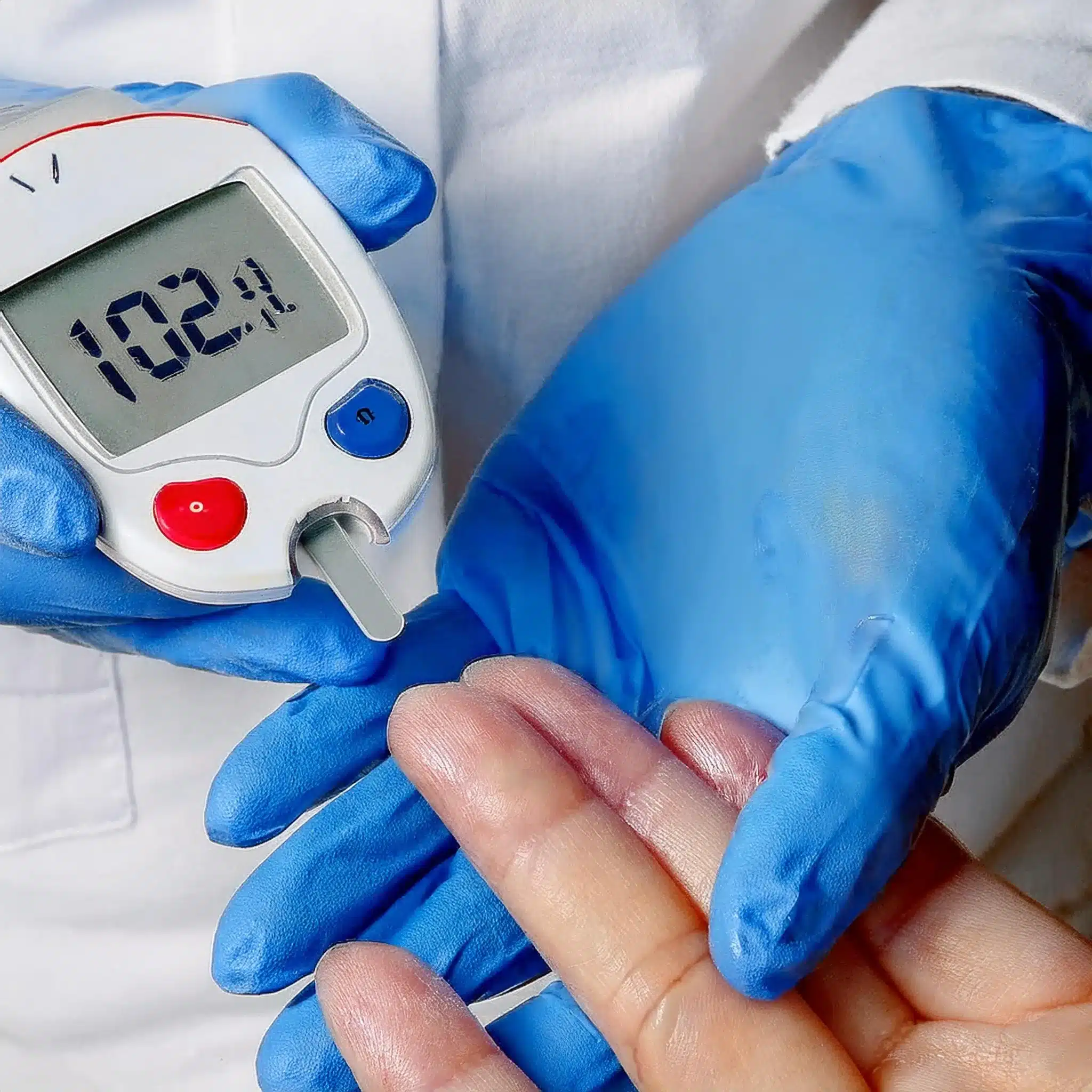
Risks and Complications of Dental Implants for Diabetes
Diabetics considering dental implants must be aware of the risks and complications.
Knowing these will help you make informed decisions and prepare for successful outcomes.
Similar to patients with dental implants and heart problems, diabetics require careful evaluation and monitoring throughout the treatment process.
Infection and Healing Issues
Higher Infection Risk: Diabetic patients are at higher risk of infections post-surgery.
This is due to a compromised immune system, which can lead to prolonged healing times and complications (1).
Delayed Healing: Studies show that poor glycemic control can delay the healing process significantly, so diabetics must have stable blood sugar levels before and after the procedure (2).
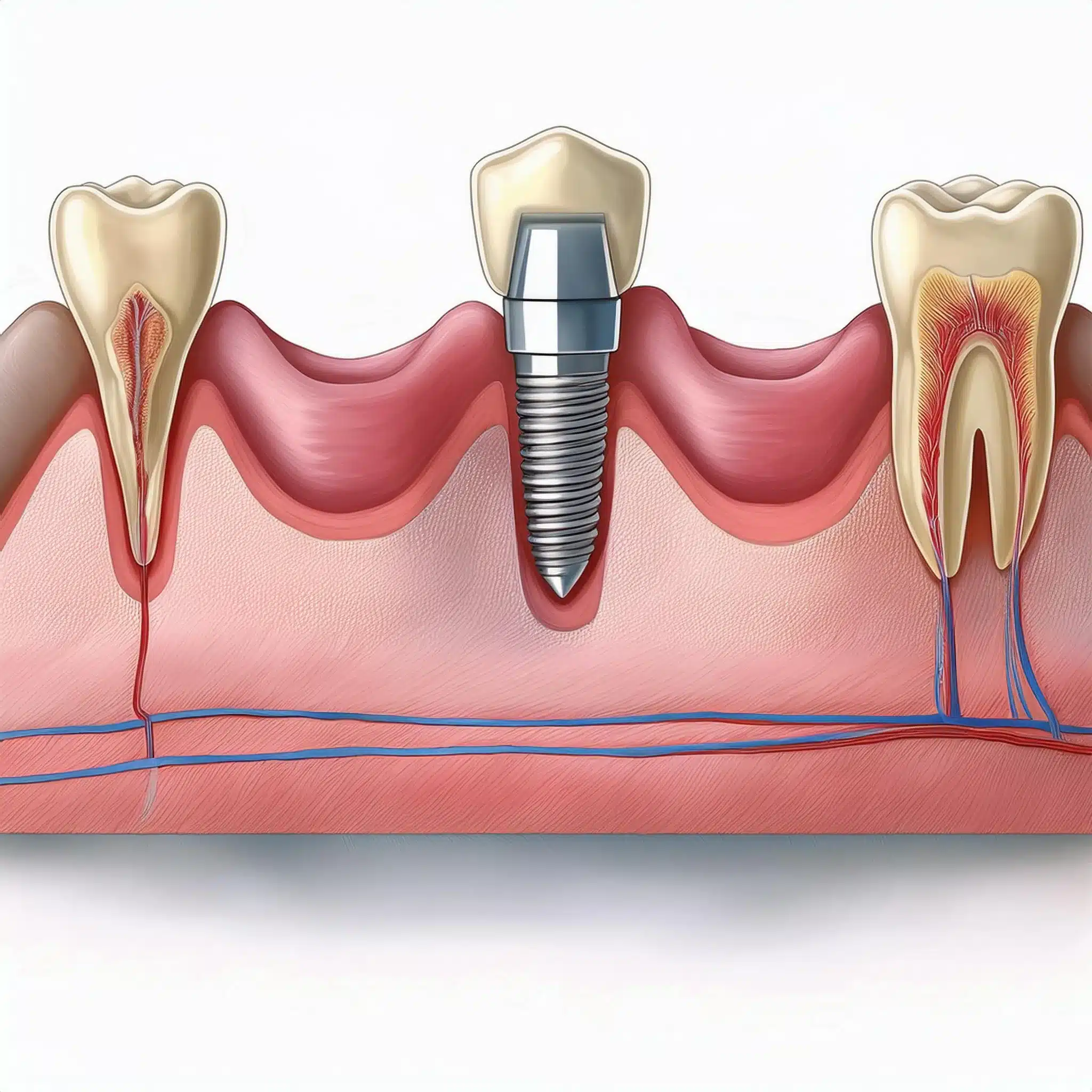
Preventive Measures: Have good blood sugar levels before surgery.Follow strict oral hygiene to minimize infection risk.
Regular check-ups with your dental specialist will help you detect any issues early.
Who can get dental implants? Generally, anyone with good overall health and sufficient bone density can be a candidate for dental implants.
However, certain health conditions and medications can affect the success of the procedure.
Implant Failure and Rejection
Higher Failure Rates: Diabetes patients have higher implant failure rates.
Studies show that the failure rate in diabetics can be much higher than in non-diabetics (2).
Factors That Contribute to Failure:
Poor glycemic control is a major one.
Longer duration of diabetes increases the risk of implant rejection (2).
Strategies to minimize risks:
Work with your doctor to manage your diabetes.
Choose a dental implant specialist who has experience with diabetics.
Consider using implants with surfaces that promote osseointegration, which may improve success rates (3).
| Risk Factor | Description | Impact on Diabetics |
|---|---|---|
| Infection Risk | Diabetics have a compromised immune response, leading to higher infection rates post-surgery. | Increased risk of prolonged healing and complications (1). |
| Healing Issues | Poor glycemic control can delay the healing process significantly. | Necessitates stable blood sugar levels for optimal healing (2). |
| Implant Failure | Higher rates of implant failure due to poor glycemic control and longer diabetes duration. | Increased likelihood of rejection and complications (3). |
Preparing for Dental Implants with Diabetes
Proper preparation is key for diabetics considering dental implants.
By doing the right things, patients can increase their chances of successful outcomes.
Controlling Blood Sugar Levels
Glycemic Control: Having stable blood sugar levels is crucial to reducing complications with dental implants.
Studies show that patients with controlled HbA1c have fewer complications and better healing outcomes (1).
Strategies:
Monitoring blood glucose levels regularly.
Following a balanced diet rich in fruits and vegetables leads to overall health and healing (2).
Consulting with healthcare providers to adjust medication as needed.
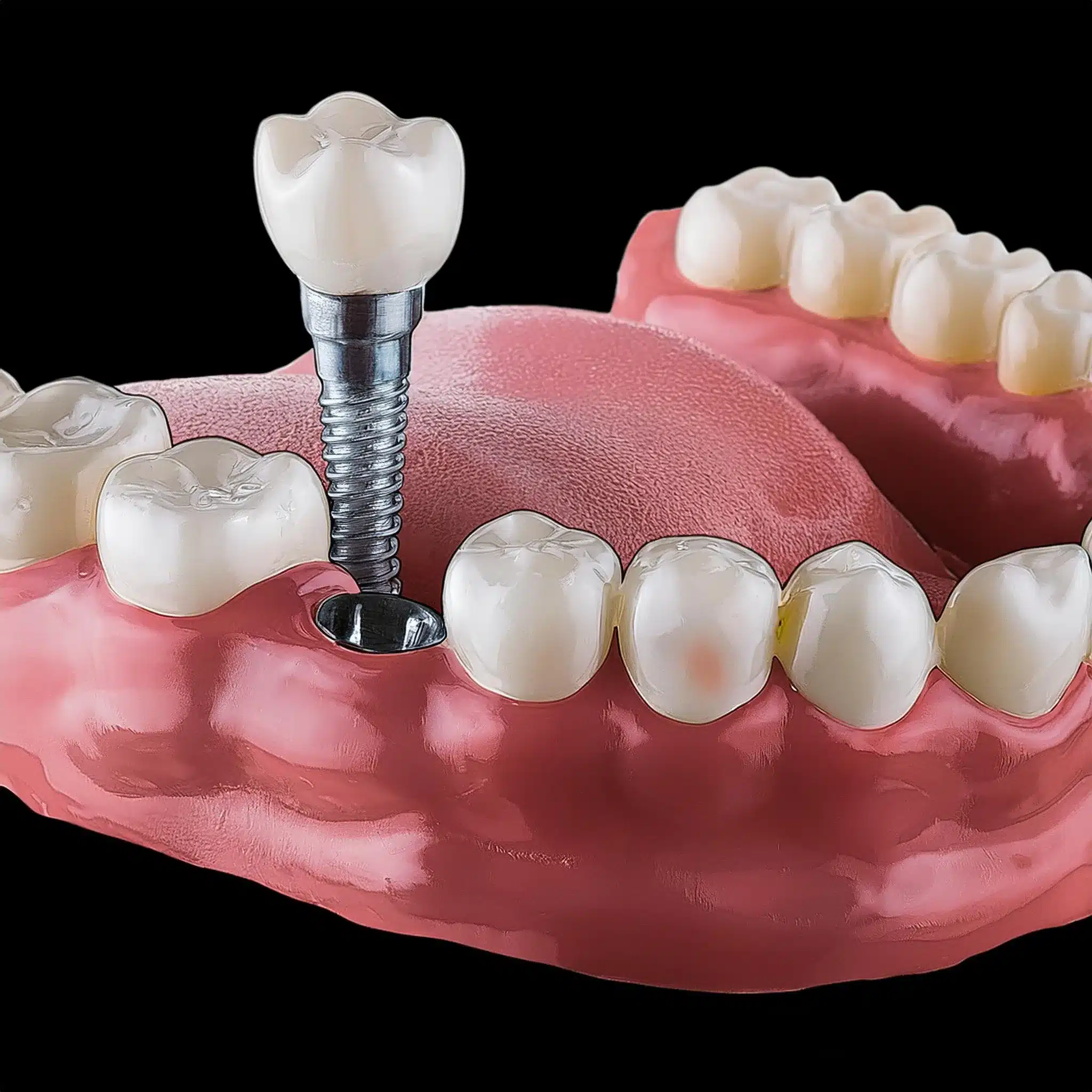
Choosing the Right Dental Implant Specialist
Expertise counts: Choosing a specialist with experience in diabetic cases can make a big difference in the success of the implant procedure.
Specialists who are familiar with diabetes complications can tailor treatment plans accordingly.
What to Look For: A proven track record of successful implant cases in diabetics.
Access to the latest technology and techniques that promote osseointegration.
Will work with the patient’s endocrinologist or primary care physician to ensure holistic care.
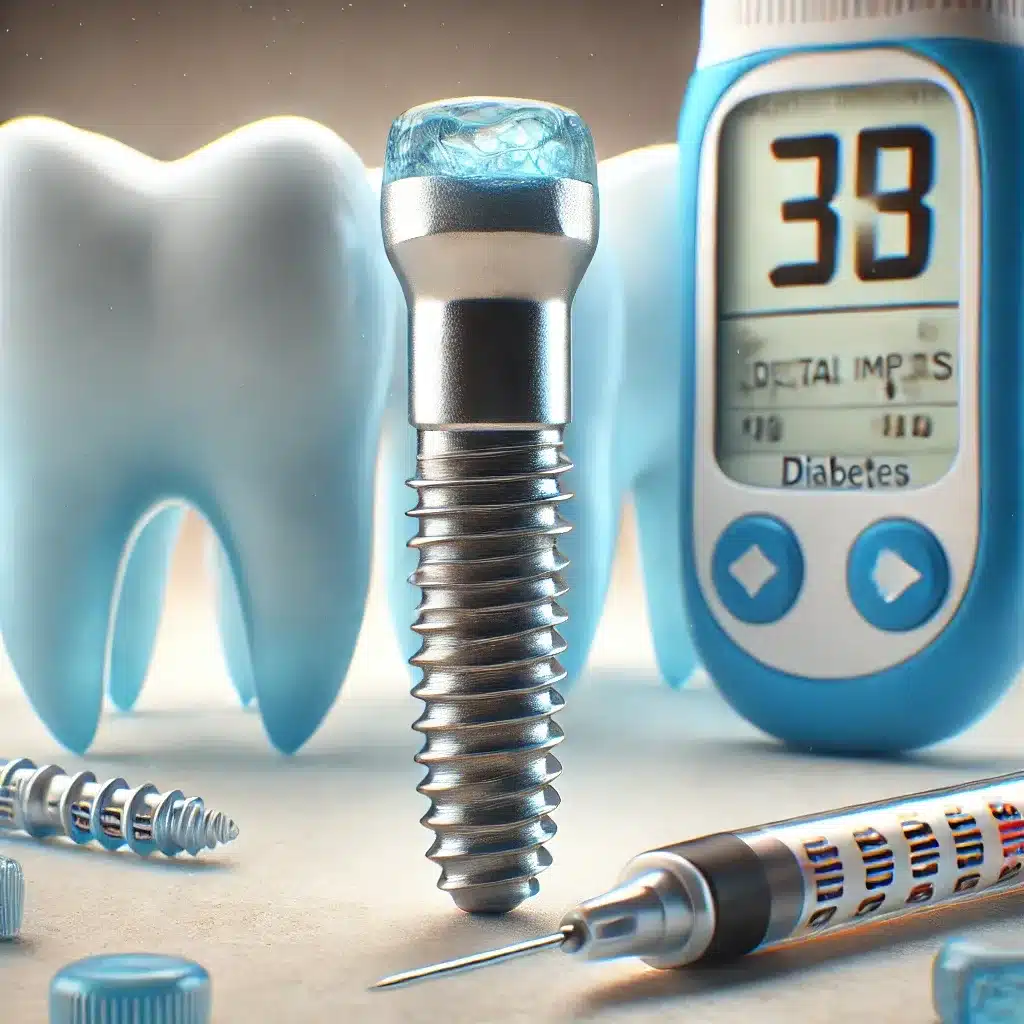
Benefits of Dental Implants for Diabetics
Dental implants have several benefits for diabetics, oral health, and overall well-being.
Knowing these benefits will help patients make informed decisions about their dental care.
Oral Health
Restoration of Oral Function: Dental implants can restore chewing and biting functions, which is important for digestion and overall health.
A study found that diabetic patients with dental implants had significant improvement in oral function and satisfaction (1).
Prevention of Bone Loss: Implants can prevent bone loss in the jaw, which is common in diabetics due to periodontal disease.
This will maintain facial structure and prevent further complications (3).
Easy Oral Hygiene: Unlike dentures, dental implants don’t need special cleaning solutions and can be cared for like natural teeth, making oral hygiene easier and more effective (2).
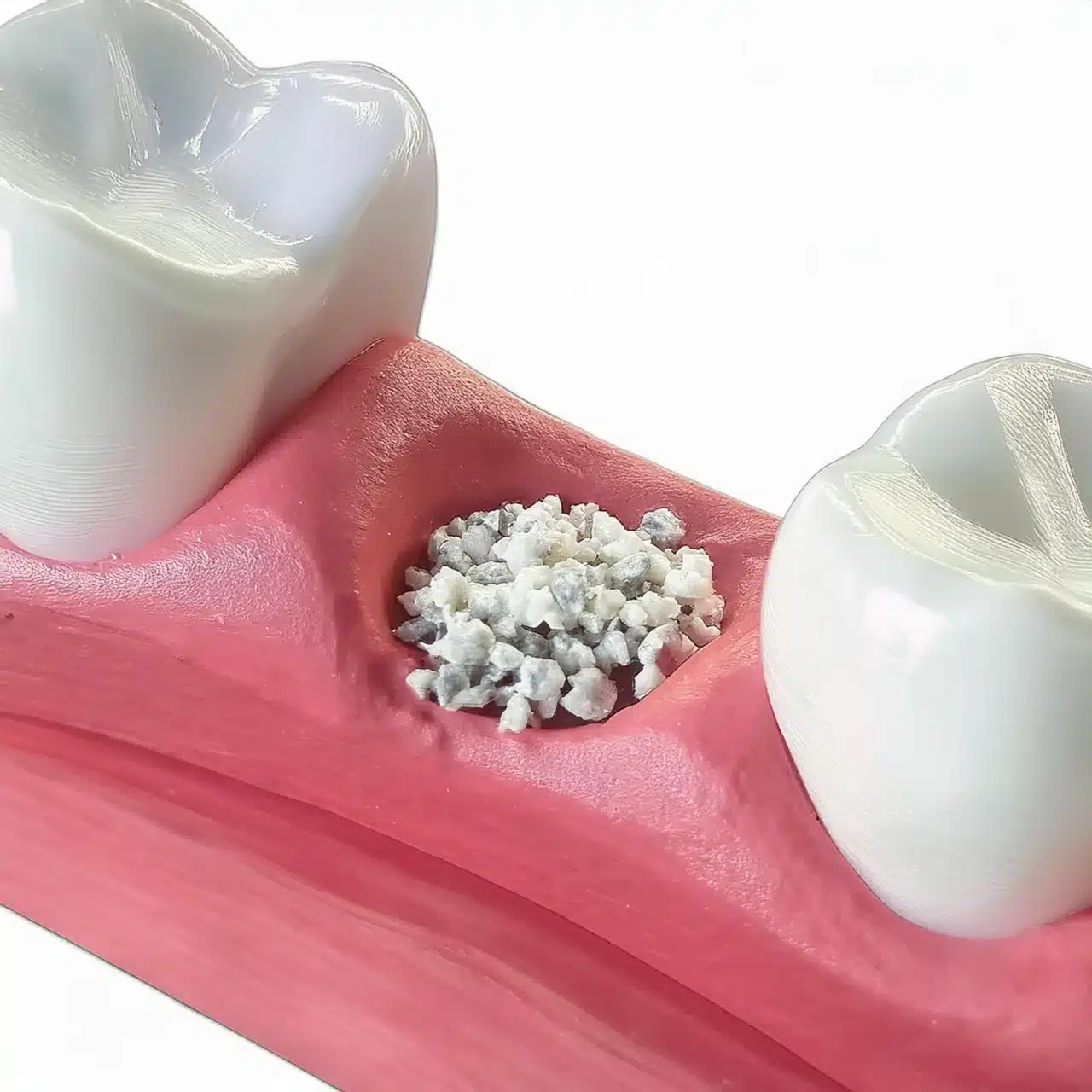
Overall Well-Being
Boosted Self-Esteem: Dental implants can significantly boost a patient’s self-esteem and confidence by providing a natural-looking and feeling solution for missing teeth (2).
Wider Food Options: With restored oral function, diabetics can eat a wider variety of nutritious foods, which is important for managing their condition and overall health (1).
Long-Term Solution: Dental implants are a long-term solution for tooth loss that are durable and stable for many years with proper care (9).
Conclusion & Key-Takeaways
Key Takeaways:
- Diabetics can get dental implants, but they must control their glycemic levels.
- Risks include infection, healing issues, and implant failure, which can be minimized with proper management and specialist care.
- Preparing for dental implants involves controlling blood sugar levels and choosing the right specialist.
- Benefits include oral health and overall well-being.
- Conclusion: Dental implants can be an option for diabetics, and the benefits are huge when managed properly.By knowing the risks and taking proactive steps, diabetics can restore oral function and aesthetics.
FAQ
References
(1) Javed F, Almas K. Diabetes mellitus and periodontal and peri-implant conditions: A literature review. J Periodontol. 2010;81(11):1555-1564.
Article: Diabetes mellitus and periodontal and peri-implant conditions: A literature review
(2) Chrcanovic BR, Albrektsson T, Wennerberg A. Diabetes and oral implant failure: A systematic review. J Dent Res. 2014;93(9):859-867.
Article: Diabetes and oral implant failure: A systematic review
(3) Mombelli A, Cionca N. Systemic diseases affecting osseointegration therapy. Clin Oral Implants Res. 2006;17(Suppl 2):97-103.
Article: Systemic diseases affecting osseointegration therapy